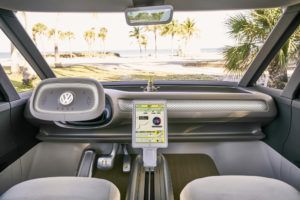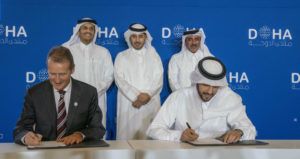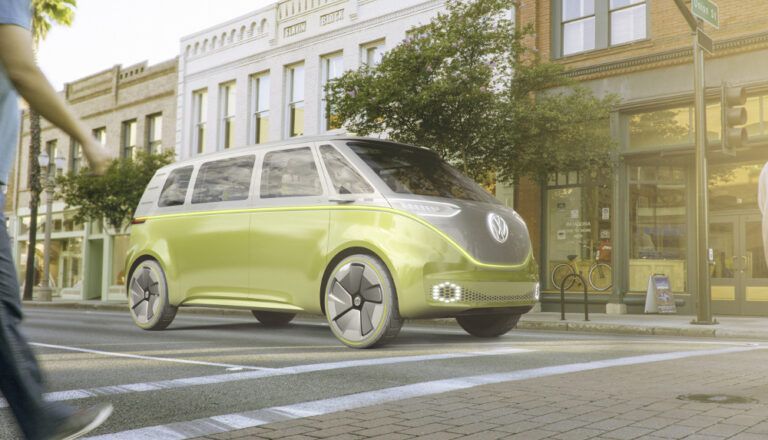Volkswagen AG (VW) and the Qatar Investment Authority (QIA) have signed the ‘Project Qatar Mobility’ agreement that aims to create the world’s first emission-free, electric and autonomous public transport system in the Gulf state in time for the 2022 FIFA World Cup.
Due to be in place for one of the world’s largest sporting events, the goal is to develop a ground-breaking autonomous transport project and transform the future of urban mobility with a sustainable and commercial deployment of autonomous-driving (AD) shuttles and bus services by 2022. QIA and VW will work together to develop the required physical and digital infrastructure to seamlessly integrate a fleet of self-driving vehicles into the existing public transport network of Qatar’s capital city, Doha. The landmark project will create a holistic ecosystem for autonomous driving, including the creation of an appropriate legal framework, smart city infrastructure and transfer of knowledge, which can be used as a blueprint to transform urban mobility, both in Qatar and other regions.
 For the first time, four Volkswagen Group brands will work together on this type of integrated urban mobility project:
For the first time, four Volkswagen Group brands will work together on this type of integrated urban mobility project:
- Volkswagen Commercial Vehicles (VWCV) is responsible for AD, Mobility-as-a-Service (MaaS) and Transport-as-a-Service (TaaS) concepts, because the first use cases for these technologies are planned in the commercial sector. VWCV will also be developing and producing Special Purpose Vehicles (SPV), such as robo-taxis and robo-vans, for future deployment;
- Commercial vehicle manufacturer Scania is developing sustainable and autonomous public transport vehicles and services;
- The MOIA subsidiary develops mobility services, such as ride-pooling and on-demand bus services, and works in partnership with cities and local public transport operators;
- AID (Autonomous Intelligent Driving) is the Centre of Excellence for the development of SAE Level 4 autonomous driving in urban environments for the whole VW Group.
For the Qatar project, autonomous, electric ID BUZZ microvans from VWCV will shuttle up to four passengers in the city’s Westbay area on semi-fixed routes, while high-tech Scania buses will pick up larger groups of people. The AID and MOIA business units will provide the SDS (self-driving system) knowledge and the app software to run the service. Closed testing of the shuttle vehicles and buses is expected to begin in 2020 and trials will start as early as 2021. The project will go live during 2022, providing a technical showcase of future emissions-free autonomous driving.
“AI-enabled, emission-free transportation technologies will help advance urban mobility, while diminishing congestion and improving energy efficiency,” commented QIA’s CEO, Mansoor Al Mahmoud. “The development of a smart transport solution will help transform the future of urban mobility, both at home and around the world.”
Outlining the aims of the project, Dr Thomas Sedran, VWCV’s chairman, said, “Utilising the Bulli microbus concept of tomorrow with the autonomous driving system currently being developed by AID, adding the intelligent ride pooling from MOIA and enabling it to be booked via an app, thus beginning the future of urban transport: CO2-neutral mobility combined with SDS technology for maximum efficiency and safety. In this way we are transporting an entire society, with all its requirements for clean, intelligent and sustainable mobility. We are becoming an integrated mobility provider, with AD the key for the transformation of our core business.”





